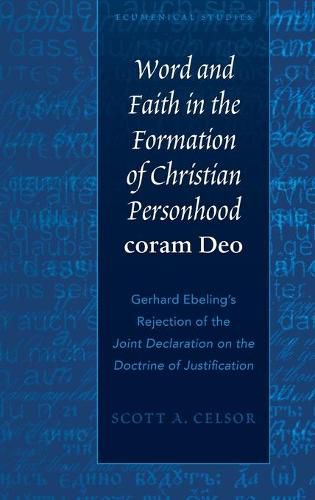Readings Newsletter
Become a Readings Member to make your shopping experience even easier.
Sign in or sign up for free!
You’re not far away from qualifying for FREE standard shipping within Australia
You’ve qualified for FREE standard shipping within Australia
The cart is loading…






This title is printed to order. This book may have been self-published. If so, we cannot guarantee the quality of the content. In the main most books will have gone through the editing process however some may not. We therefore suggest that you be aware of this before ordering this book. If in doubt check either the author or publisher’s details as we are unable to accept any returns unless they are faulty. Please contact us if you have any questions.
By the end of the twentieth century, ecumenism’s deteriorating state had become evident. This deterioration can be attributed to many causes, however, the erstwhile German ecumenist Dr. Gerhard Ebeling’s rancorous, public debate among theologians in Germany in 1998 over the Joint Declaration on the Doctrine of Justification remains a contributing factor in its decline.
Through an investigation of Ebeling’s systematic theology and his lifelong examination of the theology of Martin Luther, much of which is based upon German texts not translated into English, Scott A. Celsor identifies the hermeneutical and ontological concerns at the heart of Ebeling’s objection to the Joint Declaration. Consequently, this book provides scholars with ardent historical insights into the bitter, public debate in Germany over the Joint Declaration in addition to critical insights into the hermeneutical and ontological objections that some evangelicals still lodge against it.
This, along with the accompaniment of an extensive bibliography dedicated to the Joint Declaration on the Doctrine of Justification, make this text an ideal, advanced introduction for graduate seminars on ecumenism, the doctrine of justification, and the Joint Declaration on the Doctrine of Justification as well as philosophical theology in general.
$9.00 standard shipping within Australia
FREE standard shipping within Australia for orders over $100.00
Express & International shipping calculated at checkout
This title is printed to order. This book may have been self-published. If so, we cannot guarantee the quality of the content. In the main most books will have gone through the editing process however some may not. We therefore suggest that you be aware of this before ordering this book. If in doubt check either the author or publisher’s details as we are unable to accept any returns unless they are faulty. Please contact us if you have any questions.
By the end of the twentieth century, ecumenism’s deteriorating state had become evident. This deterioration can be attributed to many causes, however, the erstwhile German ecumenist Dr. Gerhard Ebeling’s rancorous, public debate among theologians in Germany in 1998 over the Joint Declaration on the Doctrine of Justification remains a contributing factor in its decline.
Through an investigation of Ebeling’s systematic theology and his lifelong examination of the theology of Martin Luther, much of which is based upon German texts not translated into English, Scott A. Celsor identifies the hermeneutical and ontological concerns at the heart of Ebeling’s objection to the Joint Declaration. Consequently, this book provides scholars with ardent historical insights into the bitter, public debate in Germany over the Joint Declaration in addition to critical insights into the hermeneutical and ontological objections that some evangelicals still lodge against it.
This, along with the accompaniment of an extensive bibliography dedicated to the Joint Declaration on the Doctrine of Justification, make this text an ideal, advanced introduction for graduate seminars on ecumenism, the doctrine of justification, and the Joint Declaration on the Doctrine of Justification as well as philosophical theology in general.